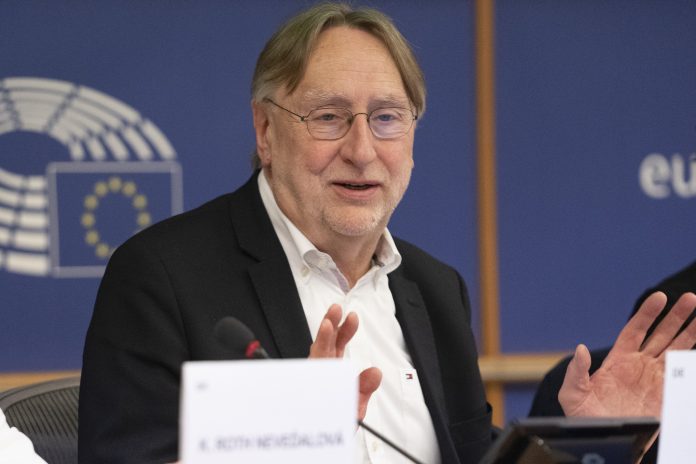The EU-US Trade and Technology Council was set up in June 2021 to strengthen cooperation between the EU and the United States in trade, technology and standards, based on shared democratic values. Its work is done via ten working groups including on technology standards, global trade challenges, climate and green tech, supply chains and data governance.
Parliament called for stronger EU-US partnership in the TTC in a resolution in October 2021.
International Trade Committee Chair Bernd Lange (S&D, Germany) made the following statement on the outcome of the 4th ministerial meeting of the EU-US Trade and Technology Council:
“The fourth Trade and Technology Council (TTC) has once again demonstrated the significance of this platform for the EU and the US to engage. To give just one example, we are now coordinating our engagement with third countries to make sure there is no circumvention of export restrictions on sensitive items. This can make a difference in the illegal war of aggression by Russia against Ukraine. Also, the new set of joint recommendations on combatting forced labour in global supply chains is a positive development that can be used to fine tune the forced labour draft regulation.
At the same time, I continue to be eager to see concrete outcomes in the trade field. Engaging and exchanging views is extremely important, but I miss concrete progress in some of the key aspects of our relationship. Although we have an approaching deadline at the end of October to resolve the steel and aluminium issue, a viable solution does not seem to be in sight. Similarly, we still have many concerns about the IRA. The Commission might now seek a mandate to negotiate a critical minerals agreement with the US, but it is clear that the European Parliament should be involved at all steps of the way. And even if we manage to get such an agreement, it will not fully alleviate all our concerns on the IRA. In addition, the discussion on reforming the WTO is also lacking in both substance and specificity, especially during these challenging geopolitical times. We should aspire to be more ambitious on all fronts.
Furthermore, some low-hanging fruit has not been picked. Both the EU and the US have trade agreements with Guatemala for example and could join forces to bring about real change in the country. I fail to see why we are not doing that.”

